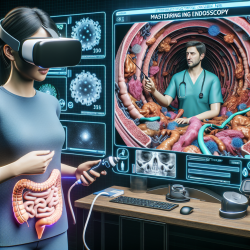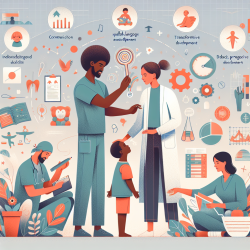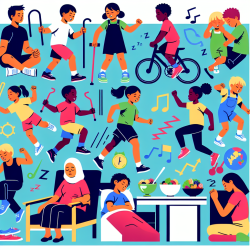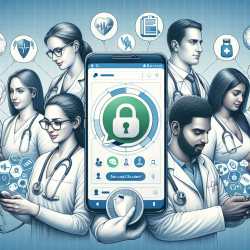Virtual Coaching: A Game-Changer in Endoscopy Training
In the ever-evolving field of medical education, the integration of virtual coaching with simulation-based mastery learning (SBML) is proving to be a transformative approach, particularly in endoscopy training. The research article titled "The synergistic role of virtual coaching with simulation-based mastery learning for upper endoscopy" highlights the efficacy of this innovative method. For practitioners seeking to enhance their skills, this study offers compelling evidence and a new pathway for training.
The Power of Virtual Coaching
The study conducted by Nguyen-Vu et al. demonstrates that virtual coaching can be as effective as direct, in-person coaching. By utilizing an online learning platform, novice trainees were able to receive cognitive and technical skills training in a structured esophagogastroduodenoscopy (EGD) course. The results showed no significant difference in the performance of trainees who underwent virtual coaching compared to those who received traditional in-person training.
Key Findings
- Trainees reached clinical competence at a similar rate in both virtual and in-person settings.
- Virtual coaching allowed for the simultaneous administration of SBML across multiple sites, expanding access to expert training globally.
- The average score for the overall exam was comparable between virtual and in-person cohorts.
Implications for Practitioners
For practitioners, the implications are significant. Virtual coaching provides a scalable solution that can overcome geographical and resource limitations, making high-quality training accessible to a broader audience. This method is particularly beneficial for those in rural or underserved areas where traditional training opportunities may be limited.
Encouraging Further Research
While the current study provides robust evidence of the effectiveness of virtual coaching, it also opens the door for further research. Future studies could explore the long-term outcomes of trainees who undergo virtual coaching compared to traditional methods, as well as the potential for this approach to be applied in other areas of medical training.
Conclusion
Virtual coaching, coupled with SBML, represents a significant advancement in medical education. For practitioners eager to improve their skills and for institutions looking to expand their training programs, this method offers a promising solution. By embracing these innovative approaches, we can ensure that practitioners are well-equipped to provide the highest standard of care.
To read the original research paper, please follow this link: The synergistic role of virtual coaching with simulation-based mastery learning for upper endoscopy.










